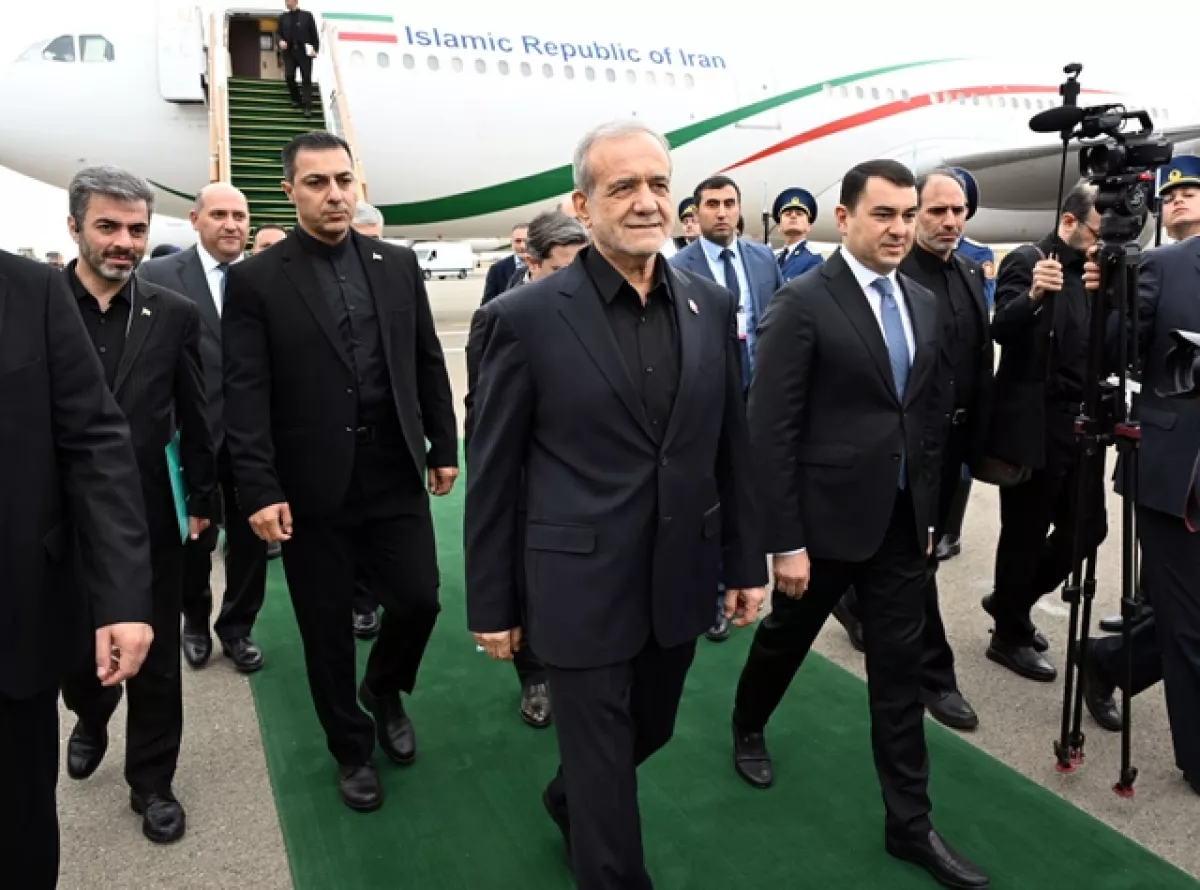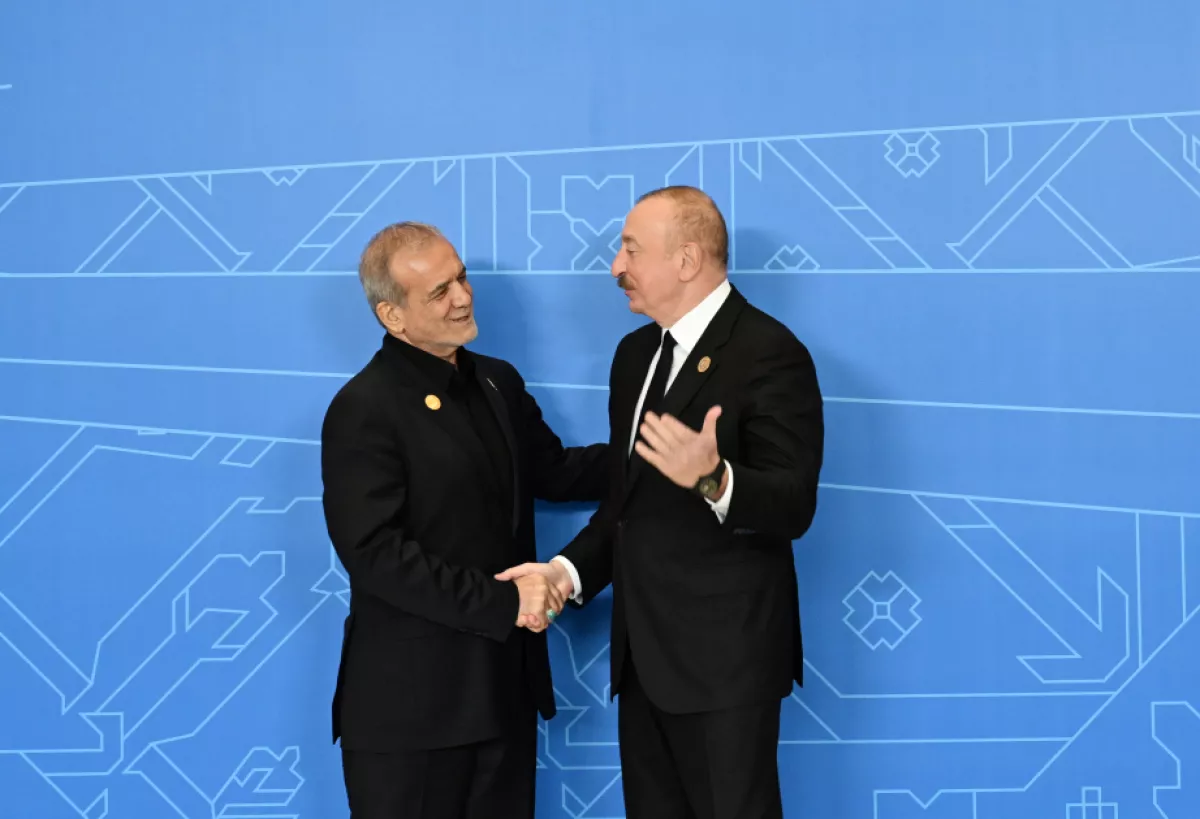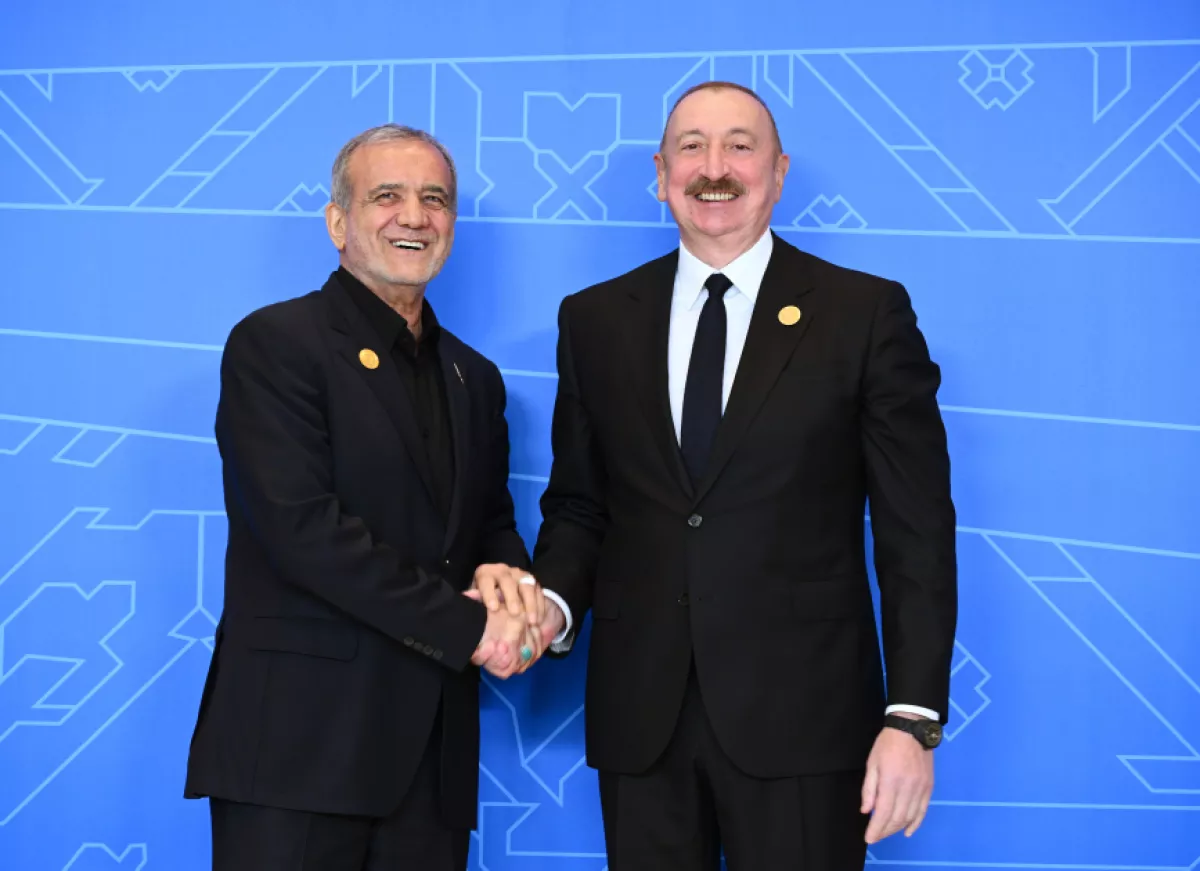Against all fake narratives Pezeshkian sets the record straight
A major international event — the 17th Summit of the Economic Cooperation Organisation (ECO) — is currently underway in Azerbaijan. This forum can confidently be described as a historic event, not only due to its scale and the high-level guests in attendance, but above all because it is taking place in Azerbaijan’s Karabakh region, in the city of Khankendi — a city from which the remnants of a separatist regime were expelled not long ago.
In September 2023, the Azerbaijani Army forced Armenian armed formations to lay down their weapons in less than a day and took control of all key positions, resulting in the capitulation of the separatist leadership. As a result of this one-day anti-terrorist operation, Azerbaijan fully restored its sovereignty.
Today, the liberated and rapidly revitalising city of Khankendi is hosting high-ranking guests from ECO member states, including Türkiye, Pakistan, Uzbekistan, Kyrgyzstan, Tajikistan, Turkmenistan, and others. A delegation from the Turkish Republic of Northern Cyprus is also participating in the summit as an observer.

However, the most symbolic moment was the arrival of the President of the Islamic Republic of Iran, Masoud Pezeshkian, in Khankendi. His plane landed at Fuzuli International Airport — itself a powerful symbol of Azerbaijan’s victory. The distinguished guest was welcomed by Azerbaijan’s Minister of Culture Adil Karimli and other officials. An honour guard was assembled in his honour as a gesture of respect and recognition of the significance of his visit.
President Pezeshkian’s participation in the summit in Khankendi is more than a diplomatic gesture. It is a clear and unequivocal message to the international community: Iran recognises Azerbaijan’s sovereignty over its entire territory, including Karabakh. Therefore, all the speculation on this matter — actively propagated by Armenian, Russian, and other foreign media — can be safely discarded as political fake news.

Recent months have seen renewed waves of an information war against Azerbaijan. Amid the escalation of the armed conflict between Israel and Iran, blatantly provocative statements have been made in an attempt to distort the true nature of relations between Baku and Tehran.
From the very outset of the latest phase in the Israeli-Iranian confrontation, official Baku has taken a principled and honest stance. Azerbaijani Foreign Minister Jeyhun Bayramov clearly articulated the country’s official position in a conversation with his Iranian counterpart Seyed Abbas Araghchi: “Azerbaijan has not and will not allow its airspace or territory to be used by any country to launch strikes against a third country, including neighbouring and friendly Iran.”
Furthermore, during the 51st session of the Council of Foreign Ministers of the Organisation of Islamic Cooperation, Azerbaijan’s top diplomat expressed concern over the “widening geography of tensions in the Middle East, including military operations against neighbouring Iran,” and stressed that Baku “calls for the restoration of the diplomatic process based on the norms and principles of international law.”
However, despite Baku’s clear and unequivocal position, there was still a sour note. Iran’s Ambassador to Armenia, Mehdi Sobhani, made a number of inappropriate — if not outright absurd — remarks. He notably stated: “Tehran has information that during the conflict between Israel and Iran, a small number of Israeli drones entered Iranian territory from neighbouring countries, particularly from Azerbaijan.”
Official Baku firmly rejected these baseless and provocative claims. “The Republic of Azerbaijan categorically refutes allegations that its airspace or territory was used by any state to conduct military operations against the neighbouring Islamic Republic of Iran or any other country. Such claims are baseless and lack any credible evidence. We expect Iran to prevent such steps, which are inappropriate to the spirit of our relations, as well as to take necessary steps regarding the opinions voiced by the Ambassador, who regularly demonstrates his pro-Armenian position, rather than represent his country,” said Aykhan Hajizada, Head of the Press Service Department of Azerbaijan’s Ministry of Foreign Affairs.
Following this, Sobhani drastically changed his stance, stating that there was “no official information regarding the use of Azerbaijani territory, and media reports alone cannot be relied upon.” In doing so, the Iranian diplomat effectively acknowledged his earlier mistake.

Both Baku and Tehran remain committed to respecting each other’s national interests and deepening their trade, economic, and political ties. The visit of Iranian President Masoud Pezeshkian to Khankendi stands as a vivid testament to the firm intention of both states to pursue this course of cooperation and mutual understanding.








